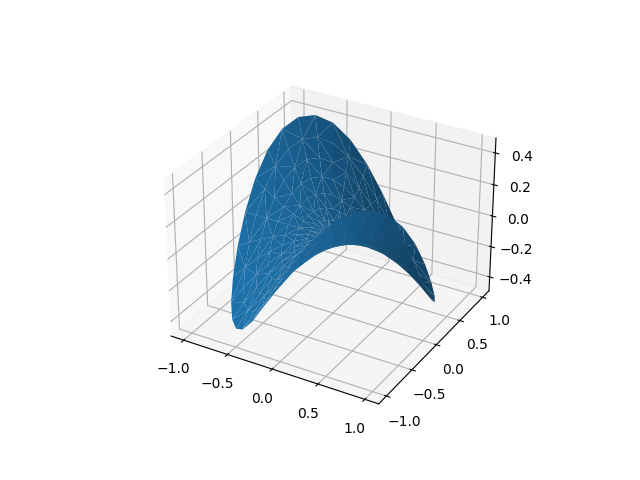Notiz
Klicken Sie hier , um den vollständigen Beispielcode herunterzuladen
Dreieckige 3D-Flächen #
Zeichnen Sie eine 3D-Oberfläche mit einem Dreiecksnetz.

import matplotlib.pyplot as plt
import numpy as np
n_radii = 8
n_angles = 36
# Make radii and angles spaces (radius r=0 omitted to eliminate duplication).
radii = np.linspace(0.125, 1.0, n_radii)
angles = np.linspace(0, 2*np.pi, n_angles, endpoint=False)[..., np.newaxis]
# Convert polar (radii, angles) coords to cartesian (x, y) coords.
# (0, 0) is manually added at this stage, so there will be no duplicate
# points in the (x, y) plane.
x = np.append(0, (radii*np.cos(angles)).flatten())
y = np.append(0, (radii*np.sin(angles)).flatten())
# Compute z to make the pringle surface.
z = np.sin(-x*y)
ax = plt.figure().add_subplot(projection='3d')
ax.plot_trisurf(x, y, z, linewidth=0.2, antialiased=True)
plt.show()